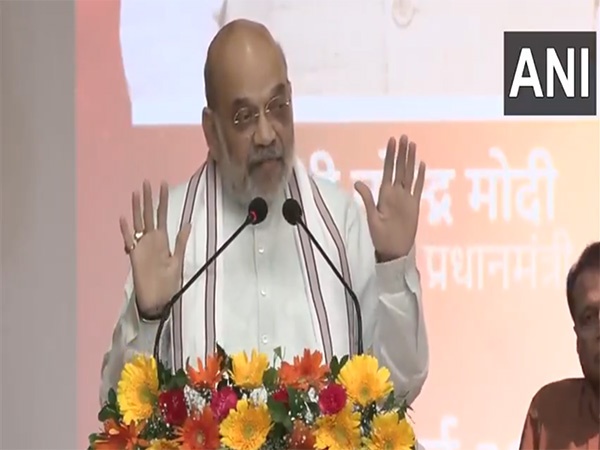New Delhi [India]: Union Home Minister and Minister of Cooperative Amit Shah on Thursday unveiled the National Cooperative Policy 2025–a milestone in the cooperative movement of India for the next two decades from 2025-45.
Addressing the unveiling ceremony of the National Cooperation Policy 2025, Shah said that under the leadership of former Minister Suresh Prabhu, a 40-member committee had presented a comprehensive and visionary cooperation policy to the country’s cooperative sector after holding dialogues with various stakeholders.
The Minister of Cooperation stated that to ensure a better future of cooperation, a 40-member committee was formed. This committee conducted regional workshops and held extensive discussions with cooperative leaders, experts, academicians, ministries, and other stakeholders to draft the policy. The committee received approximately 750 suggestions, held 17 meetings, and, after consultations with the Reserve Bank of India and NABARD, finalised the policy.
Shah stated that in 2002, for the first time, the Government of India introduced a Cooperation Policy. Even at that time, it was the party in power, with the late Atal Bihari Vajpayee as the Prime Minister.
Now, in 2025, Shah said, when the Government of India presents its second Cooperation Policy, it will again be the party in power, with Narendra Modi as the Prime Minister.
The Home Minister stated that only a party with a clear vision and a comprehensive understanding of governance, from the perspective of achieving what is required for the country’s development, can give importance to the cooperative sector.
He said that the new Cooperation Policy is a historic step toward fulfilling Prime Minister Narendra Modi’s vision of ‘Sahkar Se Samriddhi’ (Prosperity through Cooperation). He stated that the Modi government has set a goal for India to become the world’s third-largest economy by 2027.
Additionally, India bears the responsibility for the inclusive development of its 1.4 billion citizens. He said that India’s core idea is to create a model in which there is a collective development for all, equitable growth for everyone, and national progress through the contributions from everybody.
At the time of its establishment, the cooperative sector was in a dilapidated state. He added that the greatest achievement of the Ministry of Cooperation — set up to fulfil PM Modi’s resolve of ‘Sahkar Se Samriddhi’– is that today, even the members of the smallest cooperative unit in the country feel pride and confidence. He said that in the past four years, the cooperative sector has stood on equal footing with the corporate sector by every measure. He added that before 2020, some people had declared the cooperative sector to be defunct, but now, they also acknowledge its importance and future.
As per the Ministry of Cooperation, the new cooperative policy 2025 aims to revive and modernise the cooperative sector as well as realise the vision of prosperity through cooperation by creating a roadmap at the grassroots level.
Earlier in 2002, India’s first National Cooperative Policy was issued, providing a basic framework for the better management of economic activities within cooperative institutions.
“In the last 20 years, many major changes have taken place in the society, country and the world due to globalisation and technological advancement. Keeping these changes in mind, it became necessary to formulate a new policy so that cooperative institutions can be made more active and useful in the current economic scenario and the role of the cooperative sector can be strengthened in achieving the goal of ‘Viksit Bharat 2047’,” said the Ministry.
The objective of the National Cooperative Policy is to make cooperative institutions inclusive, manage them professionally, prepare them for the future and create large-scale employment and livelihood opportunities, especially in rural India. (ANI)


















